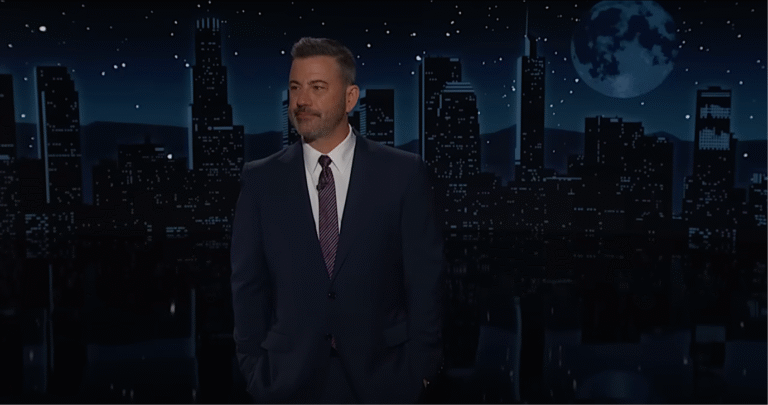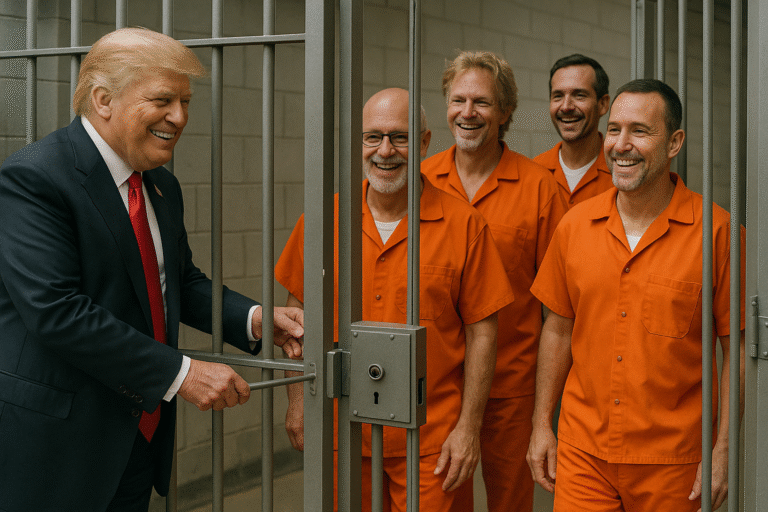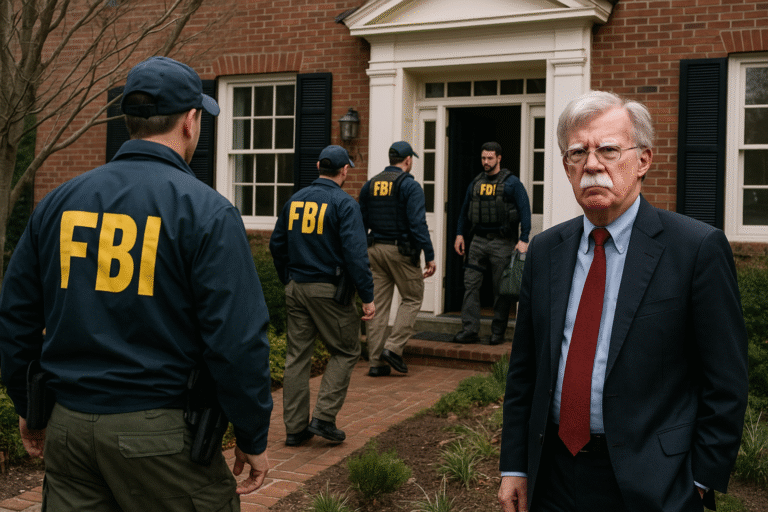Political Labels and the Art of Modern-Day Mud-Slinging
In the colorful world of U.S. politics, where ideological branding runs rampant, Donald Trump has recently been labeled a “fascist” by none other than his ex-chief of staff, retired Marine Gen. John Kelly. And no, Kelly isn’t the only one with strong opinions; Vice President Kamala Harris, during a recent town hall, echoed the sentiment with a quick and emphatic, “Yes, I do.” In response, Trump has dismissed the accusation, calling Kelly a “degenerate” as if to say, “Fascist? Me? How dare you!”
For those of us without a Ph.D. in authoritarian regimes, let’s break down the basics of fascism: it’s a far-right ideology that thrives on dictatorial leadership, central authority, militarism, and the good old-fashioned suppression of dissent. Fascists generally favor a strong social hierarchy—preferably with them on top, thank you very much. Kelly argues that Trump’s behavior fits the bill, citing the former president’s authoritarian leanings and admiration for strongman leaders, which, in Kelly’s view, paints a rather fascist-friendly portrait.
Trump’s Love-Hate Relationship with the Military
Trump’s fascination with military power was never subtle, especially when he hinted at using it against political foes like Nancy Pelosi and Adam Schiff. He didn’t actually go through with it, of course, but it’s hard to shake the mental image of Trump commanding troops to silence dissent. When he suggested using the military to control protests, his then-top general, Mark Milley, reportedly balked, drawing an eyebrow-raising comparison between Trump’s so-called “Big Lie” about the 2020 election and Hitler’s propaganda tactics. Milley was quick to stand down the military involvement, leaving us to wonder if Trump had gone too far or if his advisors had finally hit their limit.
Sure, Trump’s threats may not have materialized into martial law, but his eagerness to weaponize the military against political opponents continues to give critics plenty of fuel. And now, as he campaigns with promises to fire certain officials “within two seconds” of winning the election (looking at you, Jack Smith), he’s made it clear he’s got plans for a second term that would, let’s say, feature a few staffing adjustments.
The “You’re Fired” President
If there’s one thing Trump excels at, it’s cleaning house—specifically of anyone who dares to oppose him. From FBI Director James Comey to Attorney General Jeff Sessions, Trump has a track record of ousting those who stray from his script. Now, he’s eyeing what he calls the “deep state,” promising to purge the Justice Department, FBI, and other agencies he feels have been less than loyal. The goal, he claims, is to “drain the swamp,” though critics argue it’s more about silencing those who might disagree.
This brings us to the heart of the “fascism” accusation: if Trump had his way, his critics argue, he would not only pack government with loyalists but also weed out anyone with a dissenting opinion faster than you can say “authoritarian.” To some, this desire to purge seems like a classic tactic out of the authoritarian playbook, where dissent isn’t just frowned upon; it’s systematically erased.
A Friend to Autocrats Everywhere
Trump has never hidden his admiration for world leaders who keep a tight grip on power—Vladimir Putin, Kim Jong-un, you name it. He often seems to look at authoritarian regimes not as cautionary tales but as systems that work, in his words, “better.” Supporters argue he’s just admiring their “strength,” but critics are left wondering: if he’s such a fan, why wouldn’t he adopt a similar style if given the chance?
Trump’s admiration for the iron-fisted style of governing isn’t lost on his detractors, who argue that his ideal world would feature a similar centralization of power. His penchant for categorizing his adversaries as “enemies of the state” only adds to this perception. All of this could be passed off as Trump simply being Trump—if only there weren’t so many examples aligning with these authoritarian tendencies.
The Dance of the Political Labels
Interestingly, Trump himself has not shied away from the term “fascist”—albeit, when pointing fingers at others. During one of his recent rants, he accused President Joe Biden of creating a “fascist state,” claiming that his own legal troubles are part of some grand conspiracy to silence him. If there’s one thing both Trump and his critics can agree on, it’s that “fascism” is a potent label. Trump slaps it on Biden, while Harris and Kelly tag it right back on him. The result is a political spectacle where “fascism” is less a fixed concept and more a way to rally supporters against a common foe.
Political scientists might cringe at the casual use of such a term, but to most Americans, it’s the impact that counts. And with so many accusations flying, it’s no wonder that even staunch Trump supporters might feel they’re living through some bizarre form of political theater.
Will Voters Buy Into the Label?
Perhaps the most curious part of this whole saga is that, despite the “fascist” label being thrown around like confetti at a ticker-tape parade, Trump’s supporters remain largely undeterred. If the 2024 election proves anything, it’s that a large chunk of the American electorate has either dismissed the term’s significance or is willing to overlook Trump’s authoritarian flirtations for his America First promises.
Critics argue that if Trump wins, his voters will have accepted—knowingly or not—a level of authoritarianism that could change the country fundamentally. The term “fascism” might have lost its bite from overuse, but that doesn’t make the underlying concerns any less real. And with Trump promising to shake up Washington’s inner workings even more vigorously than before, his re-election would indeed test the resilience of America’s democratic institutions.
The Endless Battle of Political Branding
As Election Day draws near, the battle over who wears the “fascist” label—and whether it even matters—will likely rage on. If anything, the accusations reflect America’s polarized politics, where each side paints the other in the harshest possible terms. For Trump’s critics, branding him as fascist is a rallying cry; for his supporters, it’s just another empty accusation from a desperate opposition.
In the end, whether Trump’s critics or allies are closer to the truth, the label “fascist” is no longer just about history—it’s a tool, a weapon, and perhaps most importantly, a reflection of how far U.S. politics has strayed into the realm of ideological mud-slinging.








